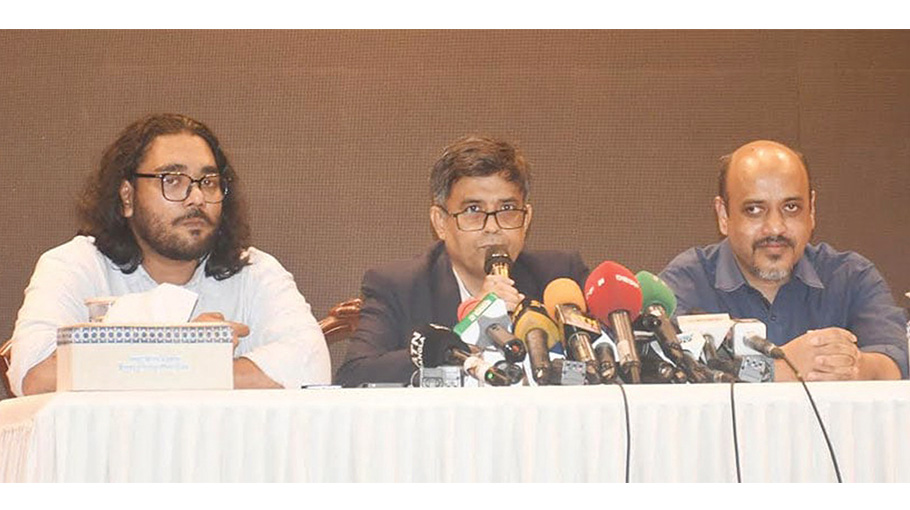Govt to talk reform with major political parties afresh

The interim government is set to hold a fresh phase of talks with the major political parties to discuss over the six reform commissions and the current law and order of the country.
The dialogue begins on Saturday. But, it has not been decided yet how many days the talks with the political parties will continue.
“The main objective of the talks is to inform the political parties about progress over the work of six reform commissions, discuss the law-and-order of the country and seek their suggestions,” Chief Adviser's Press Secretary Shafiqul Alam told reporters at a briefing at Foreign Service Academy in the capital.
There were two rounds of talks between the political parties and the Council of Advisers led by Prof Yunus after the formation of the interim government on August 8 following the fall of Sheikh Hasina led government amid a mass upsurge. The Press Secretary hoped that the six reform commissions would fully be formed with required members within the next two-three days.
The six commissions, initially scheduled to start working from October 1, are expected to place their findings before the council of advisers by December 31.
The reform commissions are the Electoral System Reform Commission headed by Dr Badiul Alam Majumdar, the Police Administration Reform Commission headed by Sarfaraz Hossain, the Judiciary Reform Commission headed by Justice Shah Abu Naeem Mominur Rahman, Anti-Corruption Reform Commission headed by TIB’s Dr Iftekharuzzaman, Public Administration Reform Commission headed by Abdul Mueed Chowdhury and Constitution Reform Commission headed by Distinguished Professor at Illinois State University Dr Ali Riaz. The Press Secretary said that the reform commissions had already started working with their terms and references in place, and they had been in discussion with those who would be joining the commissions as members.
Asked about the political parties, which will join the talks, the Press Secretary said major parties will be invited. “You will see and know on Saturday.”
Responding to a question on the CHT situation, he said there were tensions but the situation is far better now.
In the previous media briefing, the Press Secretary said the Council of Advisers headed by the Chief Adviser wanted to sit with the political parties quickly before the commissions started working on the reforms.
Alam said the six commissions were scheduled to work from October 1 but a decision came for another phase of consultation with the political leaders to seek their opinions.
Earlier on 19 September, Law, Justice and Parliament Affairs Adviser Asif Nazrul said the interim government will not hold any discussion on state reforms with the Awami League, which committed ‘genocide’ during the student-led mass uprising.
He said the government will hold discussions on reforms with political parties other than AL, civil society organisations, professionals' organisations, student organisations, and others.
On 5 September, the interim government decided that the ‘fascist’ Awami League will not get any opportunity to exercise political activities until its trial is completed.
The decision was taken at a meeting of the advisory council with Chief Adviser Professor Dr Muhammad Yunus in the chair.
After the political changeover, the Bangladesh Nationalist Party, which remains out of office since 2007, has been urging the interim government to hold talks with the political parties within the quickest possible time to assess the aspiration of the people.
Some 45 political parties have been registered with the Election Commission. Many parties, including Jamaat-e Islami, are active in the political arena despite its registration has been cancelled with the EC.




